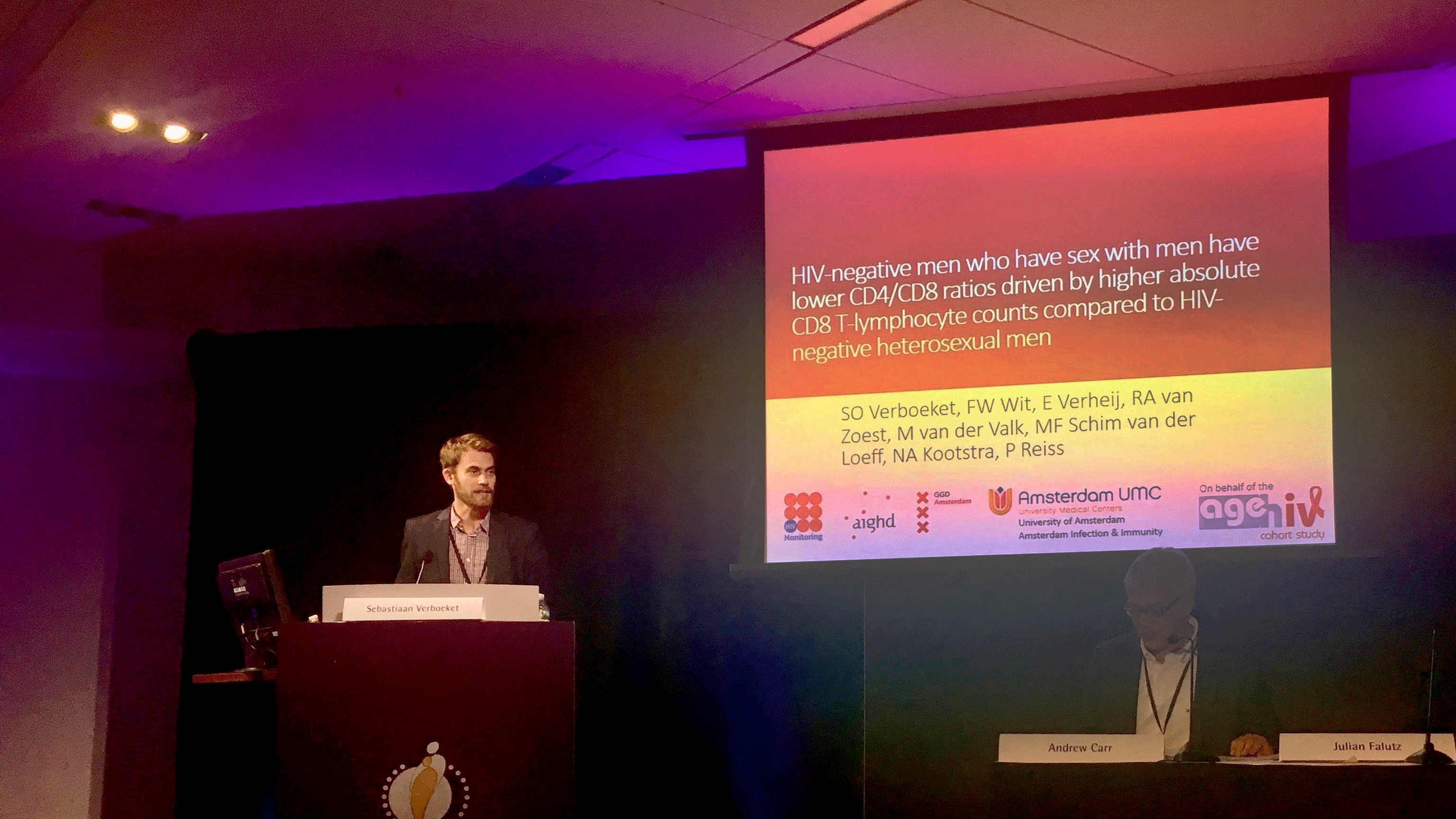
15 Oct Engaging in high-risk sexual behavior impacts the immune system: AIGHD study
Individuals who engage in high-risk sexual behavior can impact their body’s immune system, according to a recent, AIGHD-led study.
As part of the immune system, T-cells play an important role in helping ward off infections. It has been shown in prior research that people living with HIV may continue to have higher levels of chronic immune activation despite adequate treatment. This also includes a low CD4 to CD8 T-cell ratio, both because of higher levels of activated CD8 T-cells and reduced CD4 T-cells. Having higher levels of immune activation is also associated with the early and more frequent development of age-related illnesses, such as cardiovascular diseases.
It still remains to be determined why these levels of immune activation remain high in people with HIV who take appropriate medication to suppress their HIV-infection, and whether factors other than having HIV may play a role.
Sebastiaan Verboeket, a PhD student with the Amsterdam Institute for Global Health and Development, presented his research at the 20th International Workshop on Co-morbidities and Adverse Drug Reactions in HIV on Friday and showed that lifestyle impacts the CD4 to CD8 T-cell ratio in HIV-negative individuals.
Using data from the HIV-negative AGEhIV cohort participants, of which 65% of participants were men who have sex with men (MSM), Sebastiaan determined that HIV-negative men who have sex with men have lower CD4 to CD8 ratios due to a higher CD8 T-cell counts compared to HIV-negative heterosexual men. Further, the HIV-negative MSM who, on average, had a high number of sexual partners had lower CD4 to CD8 ratios and higher CD8 T-cell counts than those who did not.
While researchers could not fully explain why there was a difference, they found that the MSM in the study had been infected with the cytomegalovirus (CMV) more often than the straight men. Many people become infected with this virus at some point during their lifetime and it usually causes little to no symptoms for people with well-functioning immune systems.
“This study is important because sexual risk behavior has, to my knowledge, not been investigated as a potential determinant for a lower CD4 to CD8 ratio and higher CD8 count in such a large HIV-negative cohort. We’re now trying to tease out further which factor, CMV or sexual risk behavior, contributes the most,” said Sebastiaan.
“These findings are relevant because about 70% of people living with HIV in the western world are also men who have sex with men. We show that when you want to determine the causes for persisting immune-activation in people living with treated HIV, it is important to not automatically ascribe everything to HIV, but to also take their lifestyle, including their sexual behavior, and other infections into account.”
In acknowledgement of these important findings in his abstract HIV-negative men who have sex with men have lower CD4 to CD8 ratios driven by higher absolute CD8 T-lymphocyte counts compared to HIV-negative heterosexual men, Sebastiaan received the Dr. Robert Munk Award, which is given by the workshop organizing committee to the lead author of an excellent abstract submitted by a young investigator.
Dr. Robert Munk, who was openly living with HIV, sadly passed away in 2015 and was involved in AIDS activism since 1987. He was a long-term Scientific Committee member for the International Workshop on Co-morbidities and Adverse Drug Reactions in HIV. Amongst many achievements, he was the first development director for The NAMES Project in San Francisco before founding the AIDS Service Providers Association. In 1997, he founded AIDS InfoNet, an online patient education resource providing HIV treatment information in multiple languages.
